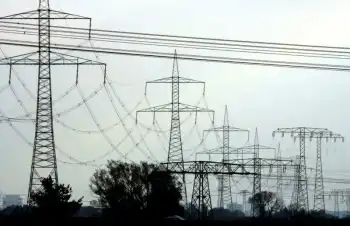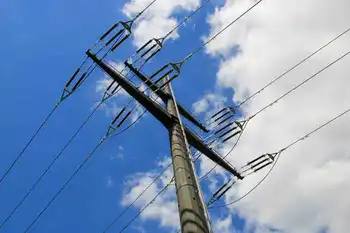Central planning approach likely to inflate rates
By Marketwire
Protective Relay Training - Basic
Our customized live online or in‑person group training can be delivered to your staff at your location.

- Live Online
- 12 hours Instructor-led
- Group Training Available
One of the main drivers of increased costs found in the province's Integrated Power System Plan is the requirement to increase the generating capacity of renewable energy by a whopping 47 per cent over the next two decades.
"This proposal will certainly win Dalton McGuinty some green points, but it also represents a hefty new energy tax," said Gerry Angevine, Fraser Institute senior economist and author of Securing Ontario's Power Supply, a review of the Integrated Power System Plan.
"If renewable energy was affordable and efficient, a government mandate to force people to buy it wouldn't be necessary."
In his report, Angevine exposes inconsistencies in the Ontario government's proposed regulatory plan. On the one hand, the plan is supposed to be "economically prudent and cost effective", according to a ministerial directive. But it cannot possibly be so given that the directive also calls for replacing coal-fired generating capacity with high-priced-and unreliable-energy sources. Nor can the plan promote "market-based" strategies if the government dictates quotas on the use of particular fuels.
It currently costs more to generate electricity from most renewable energy sources than from conventional sources such as coal and natural gas. Substantial expenditures are also required to connect remote wind and hydro power facilities to the transmission grid. Moreover, because renewable power is intermittent, backup energy sources would be required, which would entail additional costs.
"Resource planning in the case of electricity generation ordinarily requires analyses of the benefits and costs of all available sources of electricity supply," Angevine said.
"Yet the government's proposed power supply mix is largely based upon its fixation with abolishing coal-fired power plants, placing a ceiling on the amount of nuclear capacity, and courting the green vote. Consumers would be far better served if market forces, not government fiat, were allowed to determine the best mix of electric generation capacity."
The report concludes that the McGuinty government's embrace of central planning places consumers at risk of escalating electricity rates and the attendant downside for the provincial economy. Ontario consumers and the provincial economy would benefit far more were the government to undertake meaningful reform, including the following:
- Repeal the provisions of the Electricity Restructuring Act, 2004 that authorize the Ontario Power Authority to develop an Integrated Power System Plan;
- Repeal provisions of the Electricity Restructuring Act, 2004 that authorize ministerial directives relating to electricity generating capacity;
- Harmonize federal and provincial environmental standards to lower transaction costs and improve compliance. Regulations should only set standards, not dictate technologies.
Acknowledging that major reforms take time to implement, the report recommends, in the interim, changes to the proposed Integrated Power System Plan:
- Eliminate the forced decommissioning of all coal-fired power plants.
- Eliminate restrictions on nuclear and gas-fired generating capacity.
- Eliminate quotas for "renewable" energy.
- Privatize energy efficiency and demand-reduction services.
"Government is ill-equipped to micro-manage the energy sectors," Angevine said.
"Experience elsewhere has shown that deregulated markets yield a more affordable and reliable supply of energy."











